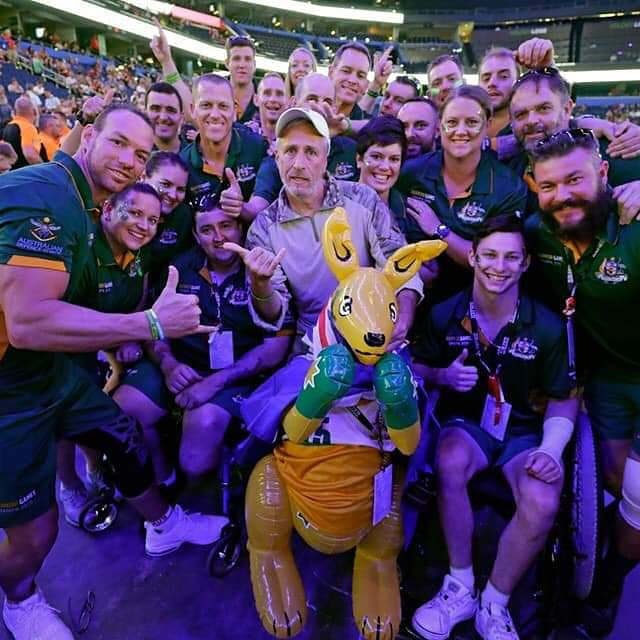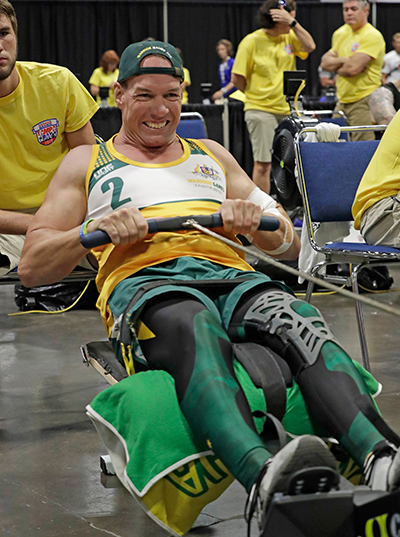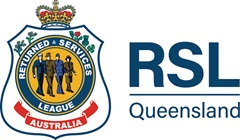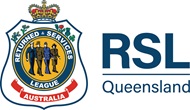
Adapting to be your best
11 October 2019- Health & wellbeing
- Veteran stories
For Army parachute rigger Peter Brown, the Warrior Games in Tampa Bay were not about winning medals.
Hosted by the US Special Operations Command (SOCOM), the Department of Defense (D0D) Warrior Games showcase the resilient spirit of today’s wounded, ill or injured service members. Australian competitor Peter Brown says the Games are a powerful tool in helping veterans on their road to recovery.
Army parachute rigger Peter Brown, 37, still gets chills down his back when he recalls his experience at the Warrior Games in Tampa Bay, Florida, from 21-30 June. Peter – a Townsville RSL Sub Branch member and previous Invictus Games medal winner – says it’s a powerful event for veterans.
“It was mind blowing. One of the most amazing experiences I’ve ever been part of.”
The Games give 300 wounded, ill and injured service members from Australia, the US, the UK, Canada, the Netherlands and Denmark a chance to compete in Paralympic-style sports.
Twenty-three Australians competed in the event. The US competes in its separate service streams of Army, Air Force, Navy, Marines and Special Operations Command.

INJURED LESS THAN A YEAR AFTER ENLISTING
Peter was seriously injured in a parachute training accident in 2012, less than a year after enlisting in the Army.
He shattered his left leg and injured his lower back, spending weeks in hospital and months confined to bed. He underwent multiple surgeries during that time.
“The rest of my career until now has been recovery mode,” Peter says.
“My days are made up of appointments with doctors, physios, psychologists, psychiatrists, rehab consultants and my own physical training.
“I got better, but my body broke down again. Then in April 2016 I lost my mum to cancer and in April 2017 I had my own cancer scare, which really sent me off the edge. I was in a bad way.”
Unable to deploy or use a weapon and with a body that wasn’t rapidly improving, Peter decided it was time to move on from the Army and he’s now in the process of medically discharging.
THE HEALING POWER OF SPORT
Getting involved in adaptive sports has been a game changer.
“I’ve always been involved in sports and after my injuries I thought I’d lost that,” Peter says.
“Finding a way back to sport through adaptive sport has been amazing. It’s good for my mental health and puts me in a better direction moving forward.”
It has also helped his personal relationships with his three children, family and friends.
“It’s making me more enjoyable to be around. Before, I was there, but I wasn’t really there,” Peter explains.
In Tampa Bay he competed in six different sports – shot put, discus, power lifting, indoor rowing, seated volleyball and various swimming events. He came away with a silver for the 200m relay swim and placed fourth and fifth in several other events.
“It’s nice to have some sort of keepsake, but the medals are more for my kids to enjoy,” Peter says.
“These competitions aren’t about winning medals, it’s about a step forward in your rehabilitation and getting yourself back to being the best person you can be.”
For Peter, the highlight of the Games was the opening and closing ceremonies and the bonds he formed with other veterans, in particular a Canadian athlete and his family. In a touching gesture, the family presented Peter with a challenge coin that had been intended for a WWII veteran who unfortunately passed away prior to the Games.

A SUPPORTIVE, LIKE- MINDED COMMUNITY
Peter says the American public were particularly supportive of all the athletes and cheered for everyone, regardless of their nationality or service stream.
“We were walking down the street and people would run up to congratulate us, thank us for our service and tell us that we were an inspiration.”
Even the training camps prior to the event provided a supportive and healing environment for athletes.
“Just being at the camps was amazing. It got me back in a better headspace. It got me being competitive again, with people who are like- minded and have no judgement,” Peter says.
“Everyone has been through similar situations and knows what you’re going through and is there to lend a hand and help you out.”
Peter encourages veterans to consider adaptive sports and get started by reaching out to their local RSL Sub Branch or Veteran Sports Australia at veteran.org.au.
Related News
Loading

